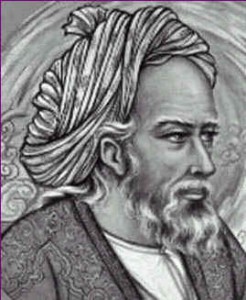 Part of the reality of life is death. It is unavoidable. How we deal with death is often reflected in song, poetry, and prose. As noted in my earlier post, Poems About Loss, expressing our grief through poetry has likely been a common practice since the beginnings of language.
Part of the reality of life is death. It is unavoidable. How we deal with death is often reflected in song, poetry, and prose. As noted in my earlier post, Poems About Loss, expressing our grief through poetry has likely been a common practice since the beginnings of language.
It”s interesting to see how each culture handles the subject of death. For instance, the Japanese offer some interesting insight into the meaning of life and, more importantly, the process of death. In the Jisei, or the Japanese death poem, the principal thought is that at a person”s last moment of living, one”s own reflections on death, whether one”s own or of the idea of death in general, is believed to be significantly meaning and lucid — forming an important observation about life itself. This Jisei was thought to be a gift to the persons family, friends or students. This tradition of offering a death poem began with Buddhists monks; however it was also quite popular with secular poets as well, who offered up either beautifully solemn verses or wonderfully humorous and flippant ones.
These death poems were generally filled with traditional symbols of death, including a full moon, songs of the cuckoo bird, views of the western sky, as well as scenes that reflected the season at the time of the writer”s death. For instance, there is the story of Goku Kyonen, a well known teacher of zen, who in 1272, when believing death was near, called his students together, tapped his cane or staff on the floor and read a poem to those assembled. At that moment, he laid down and died. His untitled poem is provided below.
(Untitled)
by Goku Kyonen

The Persians were not without their own writings on the topics of death. As with most cultures, religion often holds death as a major theme, and surly the beliefs of the Persians is no different. It”s interesting to see how even among the devout followers of Islam, there is some curious thoughts regarding death. For instance, then noted historical figure, Omar Khayyám, offered up a thoughtful set of verses which summarized his personal views regarding death.
(Untitled)
by Omar Khayyám

A well known poem in the American tradition was one composed by Mary Frye. Orphaned at twelve years of age, Frye had penned the poem in 1927 but kept its origins a secret until shortly the last 1990s. She lived in Baltimore for most of her life, selling flowers while her husband operated a clothing business. The popular story regarding the poem holds that she first wrote it down on a brown paper bag. It was so well liked by any that heard it, that Frye openly gave out copies of it to any how asked for it. Her claim to have written the poem was finally confirmed in 1998 by Abigail Van Buren, who researched the poems origins.
Do Not Stand at My Grave and Weep
by Mary Frye

Whether a zen Buddhist or young woman selling flowers on the street corner, everyone has their own thoughts on death. Whether we are ideas at the tip of a cane or a gentle autumn rain, we all share the idea that our lives have much more value than what is seen on the outside.


You must register to comment. Log in or Register.